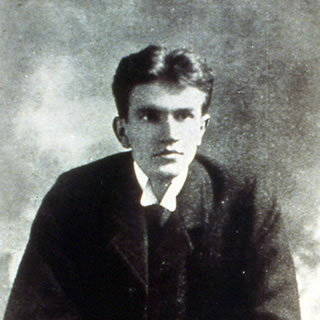A Quote by Maria Montessori
The first duty of the educator, whether he is involved with the newborn infant or the older child, is to recognize the human personality of the young being and respect it.
Related Quotes
We are humanity, Kant says. Humanity needs us because we are it. Kant believes in duty and considers remaining alive a primary human duty. For him one is not permitted to “renounce his personality,” and while he states living as a duty, it also conveys a kind of freedom: we are not burdened with the obligation of judging whether our personality is worth maintaining, whether our life is worth living. Because living it is a duty, we are performing a good moral act just by persevering.
An educator's most important task, one might say his holy duty, is to see to it that no child is discouraged at school, and that a child who enters school already discouraged regains his self-confidence through his school and his teacher. This goes hand in hand with the vocation of the educator, for education is possible only with children who look hopefully and joyfully upon the future.
I think that every educator, indeed every human being, is concerned with what is true and what is not; what experiences to cherish and which ones to avoid; and how best to relate to other human beings. We differ in how conscious we are of these questions; how reflective we are about our own stances; whether we are aware of how these human virtues are threatened by critiques (philosophical, cultural) and by technologies (chiefly the digital media). A good educator should help us all to navigate our way in this tangled web of virtues.
As a newborn baby breathes and cries, so the signs of life in a newborn Christian are faith and repentance, inhaling the love of God and exhaling an initial cry of distress. And at that point what God provides, exactly as for a newborn infant, is the comfort, protection, and nurturing promise of a mother. "If God is our father, the church is our mother." The words are those of the Swiss Reformer John Calvin ... it is as impossible, unnecessary, and undesirable to be a Christian all by yourself as it is to be a newborn baby all by yourself.
I started to respect older actors when I was young and then contemporary actors later on. Then I learned respect for comedy. When I was first doing theatre, I thought of it as just a means to become Sarah Bernhardt or someone like that. But acting with young people has been a great learning experience.
































